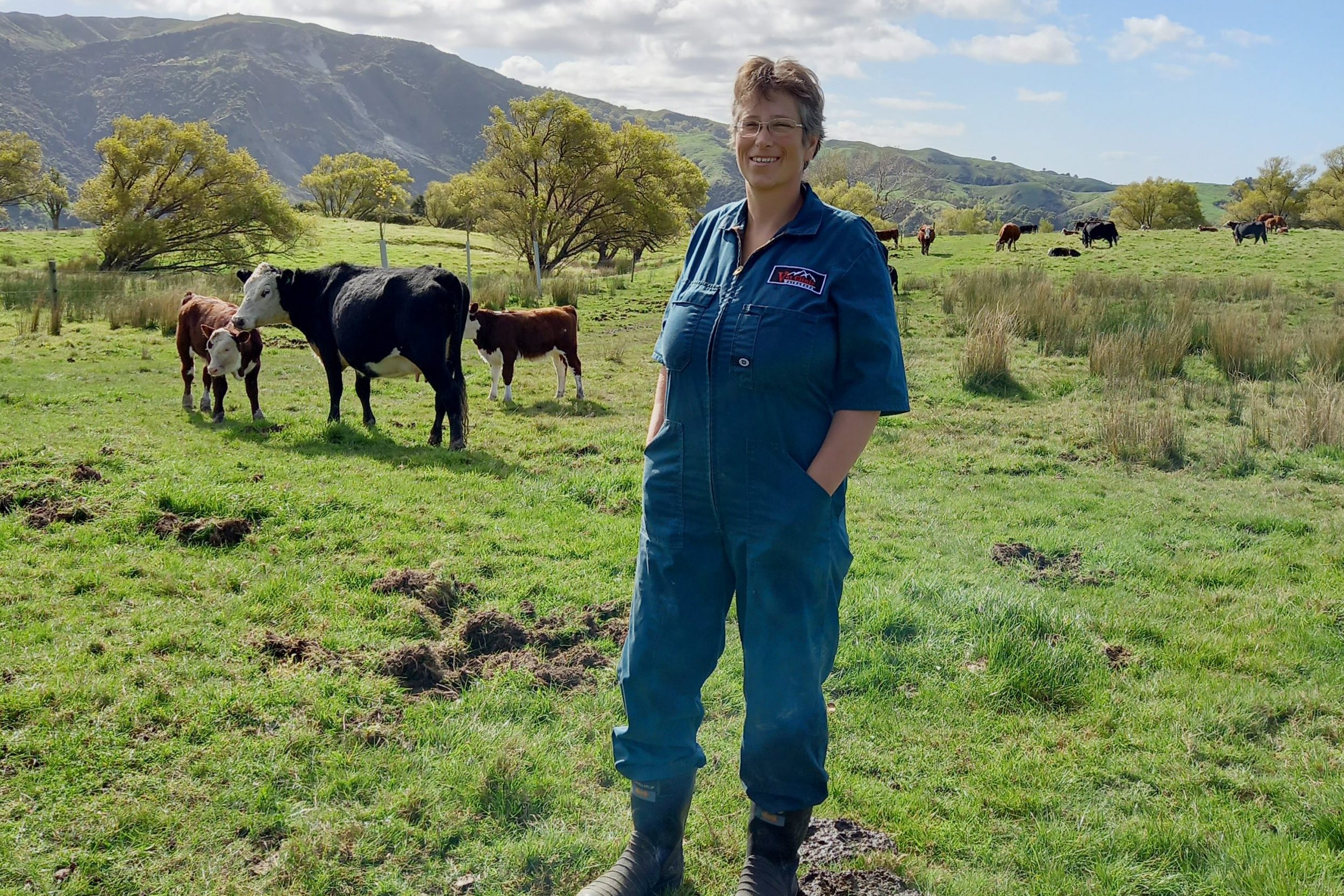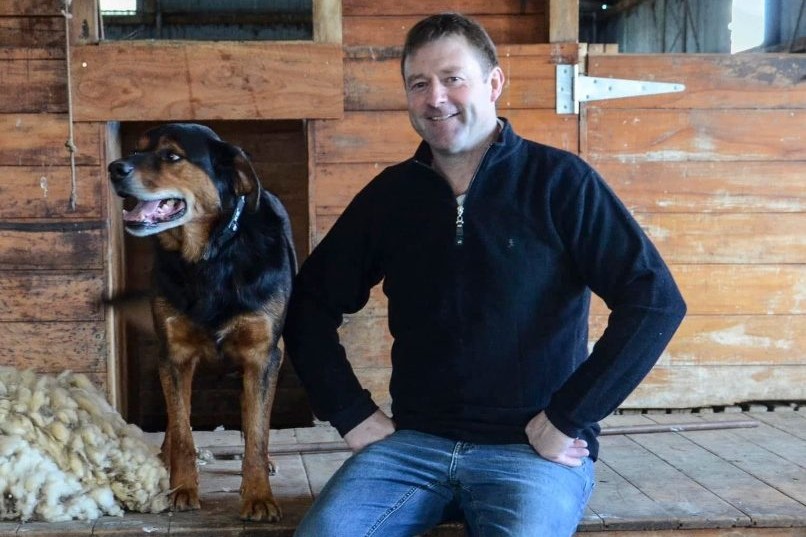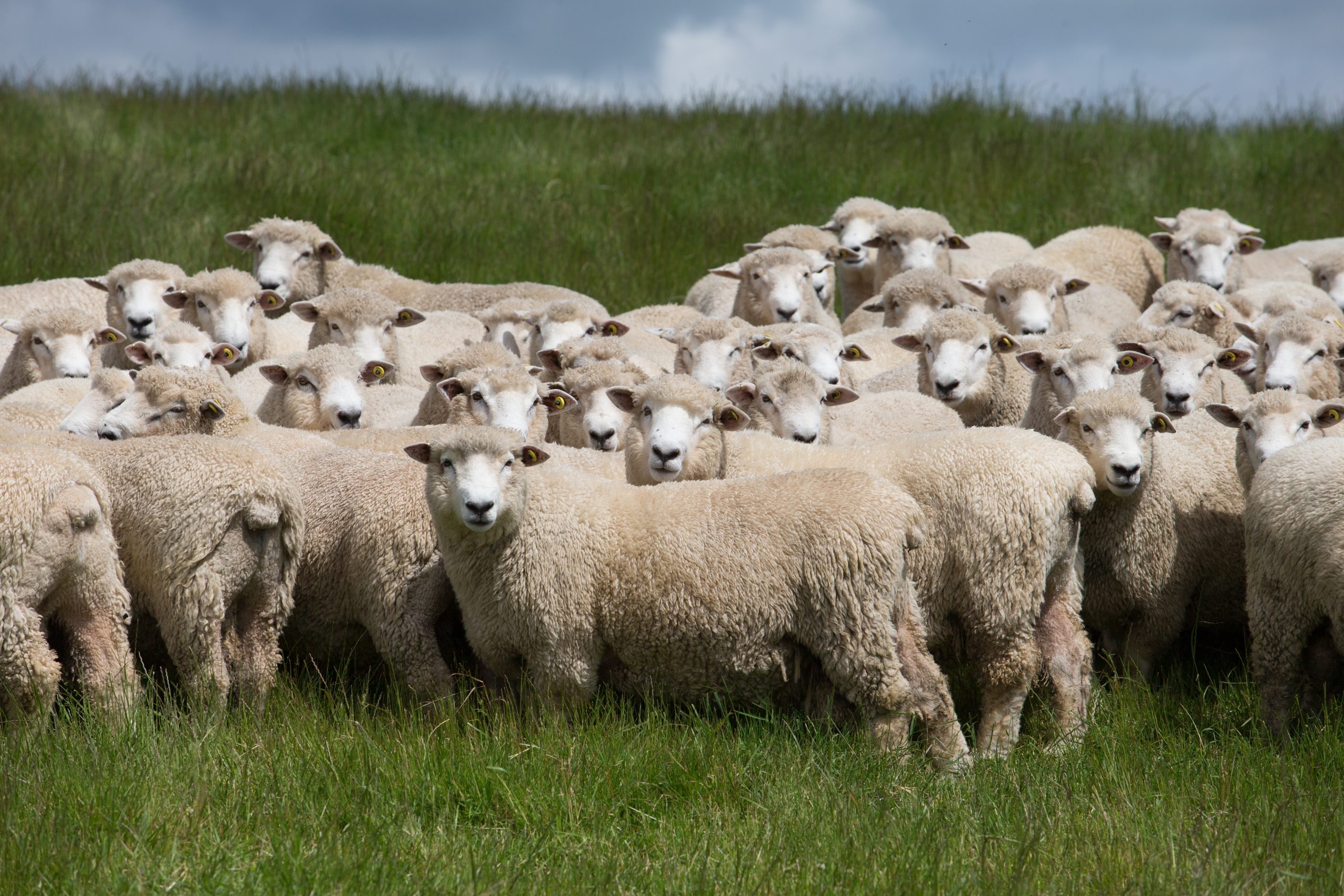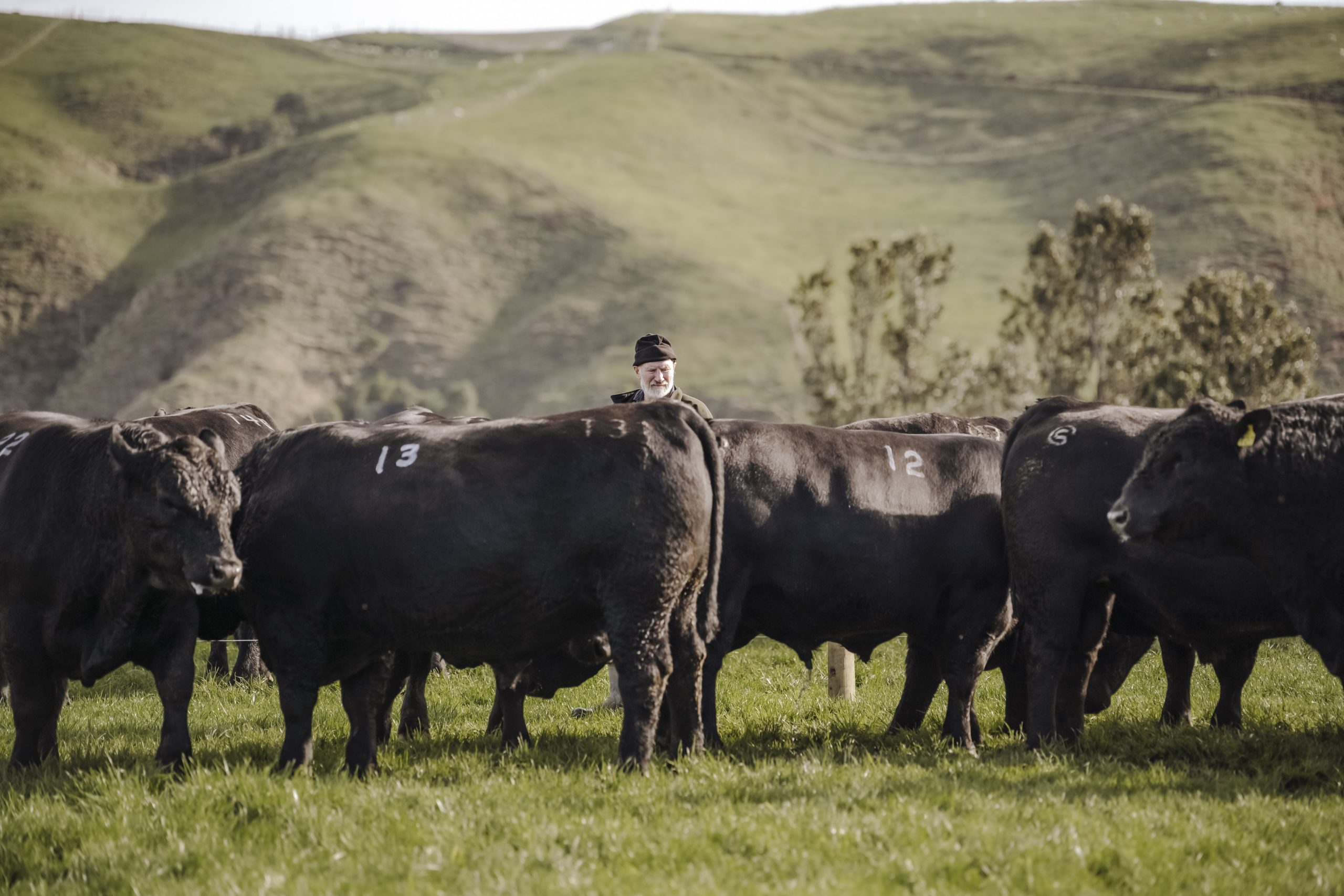Annabelle Latz
Marie Fitzpatrick has gone from cooking meat to raising it.
Before the 28-year-old became an Angus stud breeder, she was a chef.
It dawned on Marie one day in her ‘hot box of a kitchen’ as she described it, that there wasn’t the awareness out there about the necessity for quality beef.
After the first major earthquake in Christchurch in 2011 Marie quit her job as a chef and worked on a Hereford stud in Sefton, North Canterbury. The opportunity then arose to shift to Woodstock, North Canterbury, on to her parents’ 18,000ha farm Eyredale. It encompasses Marie’s Timperlea Angus stud, three run offs and the Coutts Island dairy farm. Lying west of Oxford in North Canterbury, Timperlea Angus has been Marie’s brainchild for eight years now. She manages the 427ha stud farm where she also grazes dairy cows and cattle for her parents.
“My parents own the land here and I got the opportunity to manage this place and pay grazing for the Angus cows I own.
“Growing up on a dairy farm on Coutts Island just north of Christchurch, breeding cattle was something Marie was familiar with. Her parents Clarence and Linda bought a handful of Angus from dispersal sale of ‘Lora Of George Stud’ in Lora Gorge, Southland, 17 years ago, and thus the seed of cattle breeding was sown.
There are 120 stud cows, and Timperlea Angus celebrated its first farm sale last year, which admittedly turned Marie into a bag of nerves during the build-up. Come sale day, and it all went like a dream.
“I was over the moon actually, we sold everything,” Marie said with a grin.
Average price was $4300 for the top 70% of the progeny. The remaining 30% Marie keeps for family use which they breed over Friesians. There were 30 bulls in the sale.
Until last year Marie sold through private treaty, but as demand increased an onfarm sale was the next step.
“Private treaty was good, though. I had a good relationship with clients.”
Timperlea started with 25 breeding cows and the progeny in 2012. This year they will put down 120 calves, and numbers are slowly increasing with the AI breeding programme as she slowly but surely builds equity. First round is to AI, second round is to their four follow-up bulls. But a good 80% of the cows take to first round AI.
“I’m a bit picky, I always have been, I want the quality to stay there.”
Breeding an efficient cow with good fertility and carcass traits is the goal, “really aiming for that good maternal cow.”
Life is strict for breeding cows at Timperlea, each cow on a two-chance cycle, one being AI.
“We sell a few heifer replacements too as commercial heifers. I keep about 30, I want to get up to 150, and am just slowly doing it.”
A slight point of difference in Marie’s business plan is that she sells her bulls as yearlings, and it’s going really well.
This trend for her began about five years ago when buyers started coming to her pre-sale and asking for bulls, so the sale of the younger stock began, and that seemed a lucrative market to tap into.
“And you get the best genetic gain when you’re selling yearling bulls, rather than two-year-olds.”
Calving at Timperlea is August and September, weaning is in February and they’re sold in October after being semen tested. This means one less wintering at Timperlea.
“More farmers are putting out yearling bulls than they used to. If they’re certain weights this is fine, science has proven this. As an industry, we re going for that more- efficient beef cow, so its progeny is early maturing.”
Buying from Timperlea just every second year is another trend Marie is seeing, as yearling bulls can be used for two seasons.
Marie enjoys living and learning.
In 2017 she was selected to captain the New Zealand team in Aberdeen, Scotland, for the World Angus Forum, and in 2015 she was awarded the Beef + Lamb New Zealand Five Nations Beef Alliance Young Leader scholarship to attend the annual two-week conference in Durango, Mexico. The alliance was made up of the national organisations that represented beef cattle producers in NZ, Mexico, the United States, Canada and Australia, and meet annually to both discuss issues and develop strategies to grow the global beef trading industry. Marie also took the opportunity in 2017 to visit farms in Ireland and the United Kingdom.
These travels have created a universal base for Marie back home, who regularly has overseas industry connections and friends visiting her stud.
“I tell my husband ‘we’ve got another visitor staying with us this week!’” and admitted being married to a mechanical engineer who is very helpful for the weekends’ repair jobs.
“He works in Christchurch so travels an hour to work each day… what we do for love!”
Marie enjoys the travelling and said the Angus community in NZ is very supportive of young people and the industry at large, with a family-like feel always welcoming new ideas and people.
“It has its challenges, but that’s what keeps you going.
“And the agricultural industry is so innovative, there are so many out-the-box thinkers, and it’s really exciting with what lies ahead.”
Marie was warned early on about the nor’west winds when she moved up to North Canterbury eight years ago, but says they’re not too bad most of the time. She is thriving in this community and said in times of need, like in heavy snow, there is always a friendly neighbour who will get the snow plough out.
“I’ve got really cool neighbours, I just love it here.”




